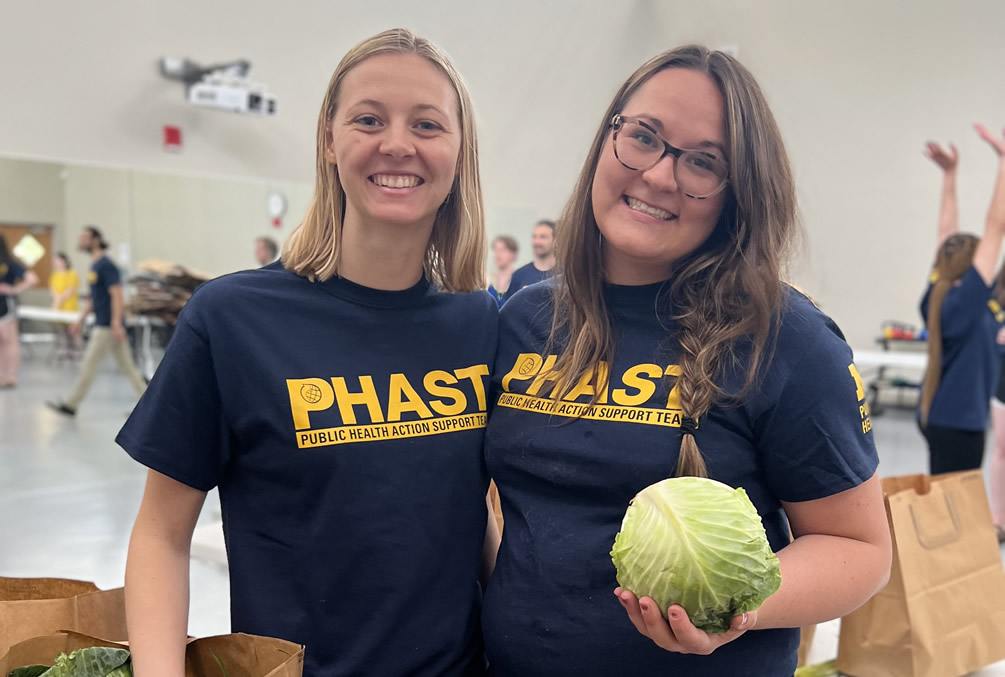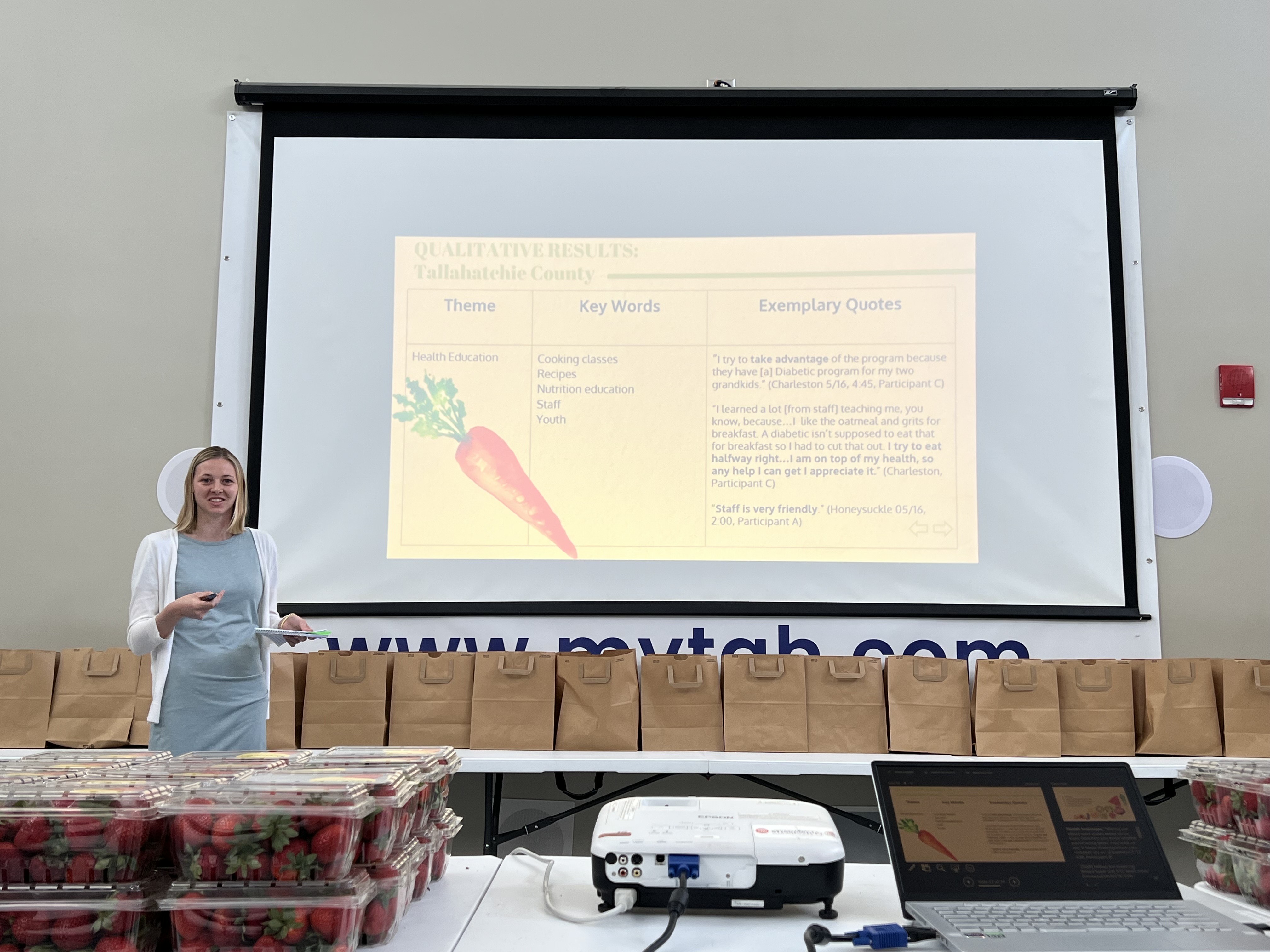Connecting with the people of the Mississippi Delta

Rebecca Bussa
2nd Year MPH Student- Epidemiology
In May 2022, I ventured to the Mississippi Delta with nine other University of Michigan students and five University of Mississippi students. We worked together to conduct focus groups in both Tallahatchie and Quitman Counties to understand how the Food Rx Program participants and staff felt about their respective programs. We were interested in what aspects of the program were working well and what areas could be improved. This feedback will help improve the programs over time as well as begin to assess the optimal program design as the Food Rx Program expands to Coahoma County in the future. Although the project was not exactly what we anticipated when embarking on this journey, our work and the findings of our focus groups provided important data to improve the health and nutrition of families with low food security in the Mississippi Delta, an area where fresh fruits and vegetables are not as accessible or affordable.
Community work demands adaptability. A dataset filled with health exposures and outcomes can be managed and analyzed at any time within a structured research question. In contrast, working with community stakeholders involves adapting to the real-life schedules of busy individuals with multiple priorities. We were able to adjust our pre-planned activities to meet with the available stakeholders and provide valuable feedback for both current and future implementations of the Food Rx programs. This required adaptability was an excellent glimpse into public health in practice as opposed to our academic pursuits.
 As I reflect on my week in the Delta, my lasting impression of my experience was my
interaction with the people there. Everyone we encountered welcomed us into their
community with open arms in a place where hesitancy with external partners exists.
Participants in focus groups, store owners in the restaurants and shops we visited,
a mother and child we met on the playground at the James C Kennedy Wellness Center,
and a woman who’s southern hospitality led her to welcome us into her home were incredibly
kind and eager to share their stories with us. I am so grateful for the conversations
with them and their willingness to be vulnerable with us.
As I reflect on my week in the Delta, my lasting impression of my experience was my
interaction with the people there. Everyone we encountered welcomed us into their
community with open arms in a place where hesitancy with external partners exists.
Participants in focus groups, store owners in the restaurants and shops we visited,
a mother and child we met on the playground at the James C Kennedy Wellness Center,
and a woman who’s southern hospitality led her to welcome us into her home were incredibly
kind and eager to share their stories with us. I am so grateful for the conversations
with them and their willingness to be vulnerable with us.
My immersion into the Mississippian community and interaction directly with community stakeholders reinforced my desire to center health equity to my public health practice as I enter the field. As someone interested in state and local public health, I know that work in this area of epidemiology is inherently connected to the community it serves. The goal for my future career is to strive for health equity and to ensure that the communities I work with remain the focus by gaining feedback from important stakeholders that are leaders in their community. Additionally, I desire to work on public health initiatives that are priorities within the community I serve. Gaining feedback from program participants demonstrated the importance of uplifting their voices in my future work.
I am so thankful for this unique opportunity to round out my graduate experience at the University of Michigan. I would encourage any student looking to engage with communities to consider the Public Health in Action experience in the future. I know my work in Mississippi will help guide my future practice as an epidemiologist.
